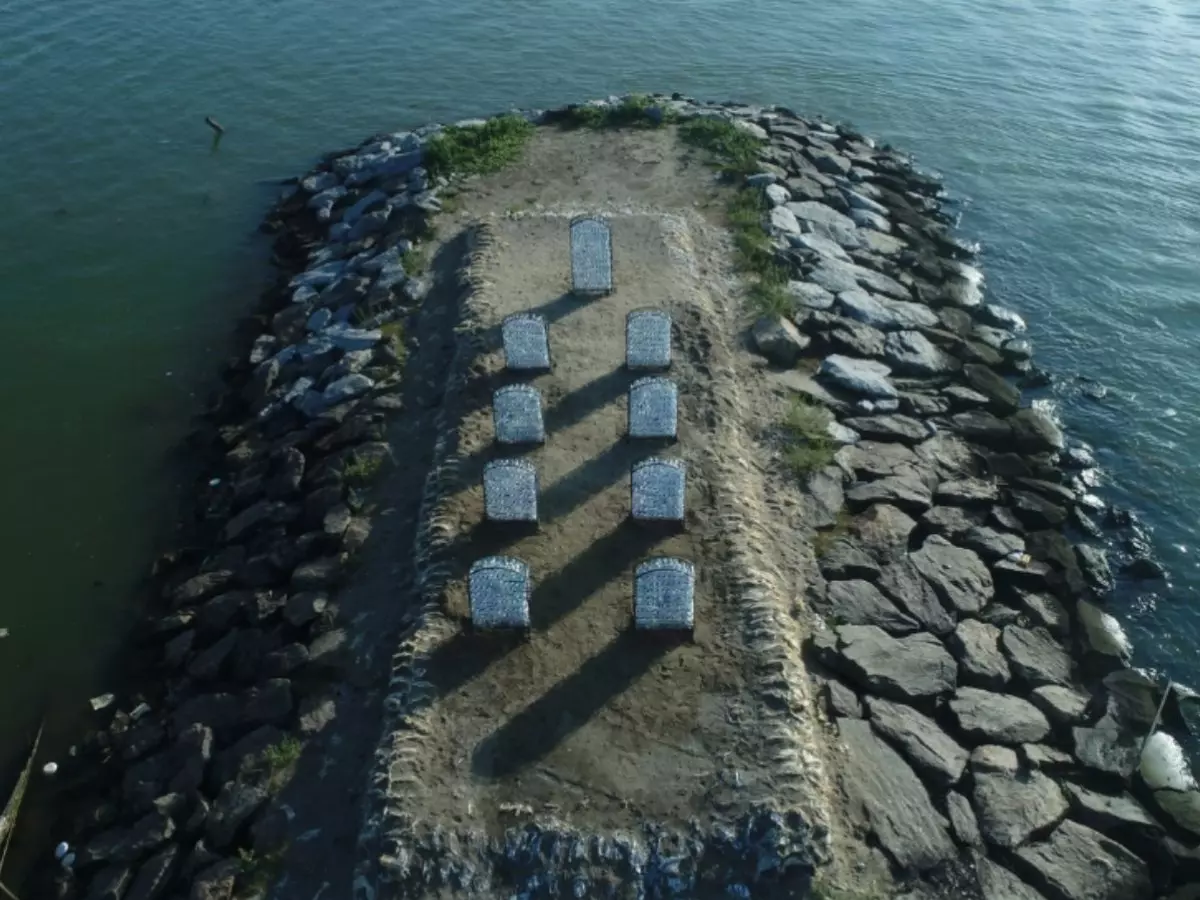This Kerala Cemetery Is Dedicated To Marine Animals That Died Because Of Plastic Pollution
Year after year a staggering number of animals die as a result of plastic pollution. A watersports company in Keralas Kozhikode district has dedicated a cemetery to all the animals that have suffered a painful death owing to this menace. The cemetery consists of nine gravestones made of iron frames and plastic bodies that bear the names of the soon-to-be-extinct or critically endangered aquatic life.

The use of plastic products dominates our daily lives. It may be one of the most versatile household items but this has killed a number of animals, birds and marine life.
Year after year, a staggering number of animals die as a result of plastic pollution. These marine animals get attracted to plastic items because it smells of food and, more often than not, end up choking on the waste.

In a bid to raise awareness on the slow death of marine life, a watersports company in Kerala¡¯s Kozhikode district has dedicated a cemetery to all the animals that have suffered a painful death owing to this ever-growing menace.
The cemetery stands in between Chaliyar river and Beypore beach in Kozhikode and all the 4 x 3 feet gravestones are made of single-use plastic bottles.
According to reports, the company named Jellyfish Watersports have been working with climate activist Aakash Ranison, to spread awareness about the effects of plastic pollution.

Picture for Representation/Instagram
"It took us around 25 days to come up with these installations. Eight of them are 4-feet-tall and the one in the centre is six-feet-tall. The tallest one is dedicated to the fish Denison Barb, which is popularly known as Miss Kerala," Edex Live quotes environmentalist and a travelpreneur Aakash Ranison as saying.
The 'Marine Cemetery' consists of nine gravestones made of iron frames and plastic bodies that bear the names of the soon-to-be-extinct or critically endangered aquatic life on them.

Picture for representation/Instagram
Reports state that the cemetery was inaugurated by the collector on December 4, which was also World Wildlife Conservation Day. The plastic that went into building the tall tombstones took 200 volunteers who picked up waste from the Chaliyar river.
According to Edex Live, the paddlers of the Jellyfish club have been collecting plastic wastes from the water bodies for the past five years. The cemetery was a joint effort of artists, climate activists and marine biologists who worked for months on end to make sure that plastic used to build the gravestones stay put and don¡¯t fall back into the waters.
Along with the creation of this cemetery, the Jellyfish company is also playing a huge role in sensitising people about discarding waste and keeping the waters free of plastic. According to Vice, the company encourages paddlers to clean the Chaliyar River and locals too do their bit to keep the shores of the Baypore beach free of garbage.
It¡¯s time we took stock of the situation and reduced the use of plastic items.
